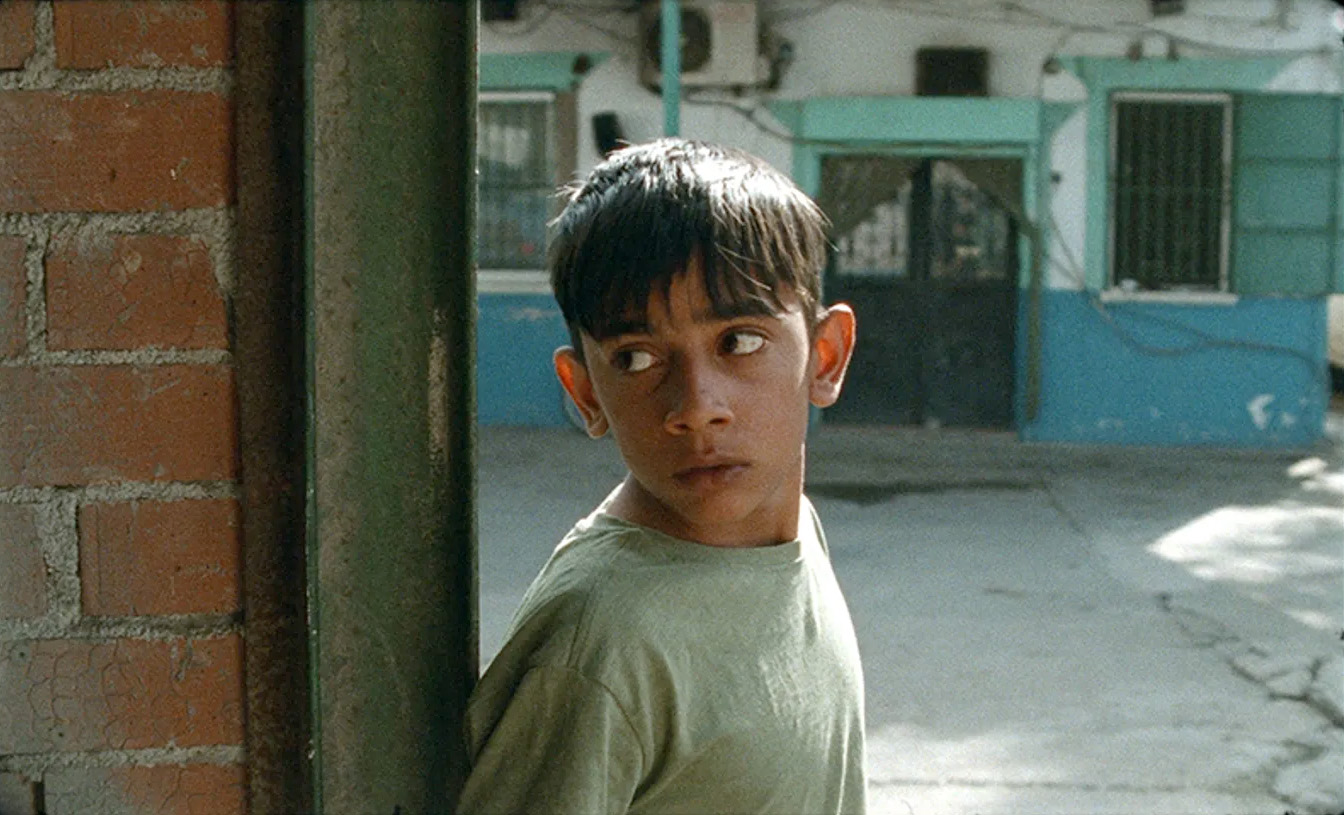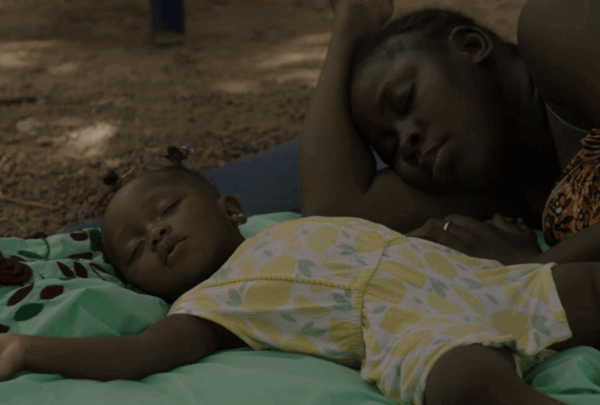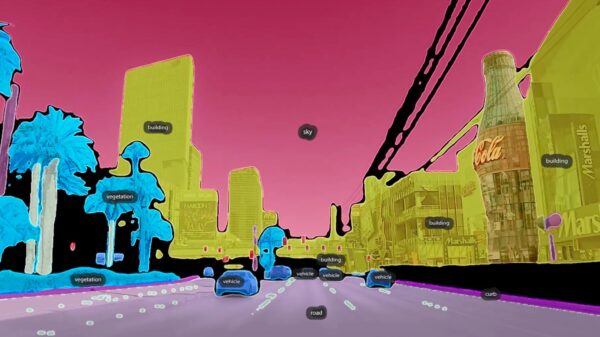A Looming Loss
Aunque es de noche
No hollow performances of masculinity to mask the realities of grief in Guillermo García López’s Roma family tale. By exploring insecurities, his coming-of-age story becomes a metaphysical quest for reassurance.

We open on a young boy in portrait format, nonchalantly flipping a dilapidated car onto its roof. He’s raising his skinny arms in a gesture of triumph. Cue the clicks. Then switch to front camera: 13-year-old Toni and his best friend Nasser are now inside the frame, holding onto each other and balancing atop the vehicle. Looking back at this opening scene, it is clear that denial has already crept in: in two days, Nasser will be leaving.
How to deal with a loss that has not yet occurred? Knowing that ‘dealing with’ can either mean rejection or acceptance, Aunque es de noche explores both avenues while withholding any direct answers. An elegant commentary on Roma identity, class, and youth, it carves out a space for consolation. Indeed, the representation of male grief here is refreshing in our get-over-it-society, where narratives often limit young boys to sparse emotional registers. Toni will be without his best friend very soon and it hurts. Period.
Usually, though, Toni’s subjectivity—rendered through a shaky handheld smartphone—is grounded in a language of superlatives: the boys are on the hunt for the best shots, yanking filters to the max, in a flashy restaging of their hometown. A view of a garbage-ridden landscape comes accompanied by Toni’s witty commentary: “La Cañada is the best,” he declares, with a vigour that makes you laugh out loud. In reality, La Cañada Real is Europe’s largest informal housing strip, lining Madrid’s motorway to the South and “housing” roughly 2,300 people in gradually worse circumstances. Dip the place into tenderly shifting hues at sunset, and beauty comes couched in layers of irony.
Bold love letters to La Cañada are a perfect example of Toni’s cheekiness, as well as the film’s solidarity with the local community. Raw camerawork, and lighting, is alive to the fact that La Cañada Real has been without electricity for almost four years. Playing with shadows, flashlights, crackling flames and phone screens, the film paints a loving portrait of a place, and its characters, that eschews stereotypes.
Coming-of-age cinema has, in recent years, developed a grammar of closeness and vulnerability when it comes to young masculinity. Sometimes, love is obscured by violence, as in Guðmundur Arnar Guðmundsson’s Beautiful Beings, elsewhere it bubbles under the surface as in Lukas Dhont’s Close. Aunque offers a new take on this subgenre: here, too, inevitable pain is laid bare from the start, but there is no breaking point. Pain surfaces unhindered and is not glued to a forced dramatic arc (a trait that features in the other films mentioned above). Indeed, the main obstacle here seems to be how these boys will keep in touch: Toni is in dire need of a phone.
Dusk. Frayed edges of 16mm film replace outlines of sharp smartphone rectangles, spreading out a colour-palette of rich blues: blue gravel, blue walls, blue sky, baby blue sheep. The narrative tone switches into soft fire-side whispers, and a voice fills up the darkness, marking the beginning of a Roma family tale. Aunque es de noche finds its true singularity in its use of Roma folklore. From this point onwards, the film successfully works on two frequencies: the lyricism provided by folklore and the plot. An urgency in pace is thwarted by a camera that likes to dwell; night dictates the passing of time, but is broken by rebellious torchlights. A space has been cracked open between reality and imagination, leading tradition and youthful rebellion to interact.
So how does an anxious yet caring boy acquire a phone? Who could show him the way in a world where male adults handle power tools, ride motorbikes, or work at maintaining their coercive cartels? With a nod to the delinquency of coming-of-age cinema, Toni very clumsily takes a cigarette from a certain Manuel’s hand. (Think Bresson’s Pickpocket—minus the elegance.) Here, the characters’ choreography is not unlike that of a charade that exposes masculinity. Of course, it wasn’t Toni’s money, and when Nasser suggests returning the phone, dread trickles into a painfully honest line of dialogue: “Don’t you care that we can’t talk anymore?!”
An unspoken permission to care arises from the gap between the boys’ friendship and stereotypical male relations: Aunque es de noche won’t allow for hollow performances of masculinity to mask the realities of grief. Instead, by exploring insecurities, the film becomes a metaphysical quest for reassurance.
By the end of the tale, the narrator’s voice shifts from conspirative undertones to buoyancy, serving a hint of comic relief. We almost expect a resolution. But don’t get your hopes up: like Toni, we won’t know if the friendship will survive the distance. The emotional rawness we’re left with attests to the film’s intelligent depiction of male adolescence and leaves a much stronger mark than any resolution. In the very last shot, though somewhat defeated, Toni looks up at the night sky like some small hero of empathy.





There are no comments yet, be the first!